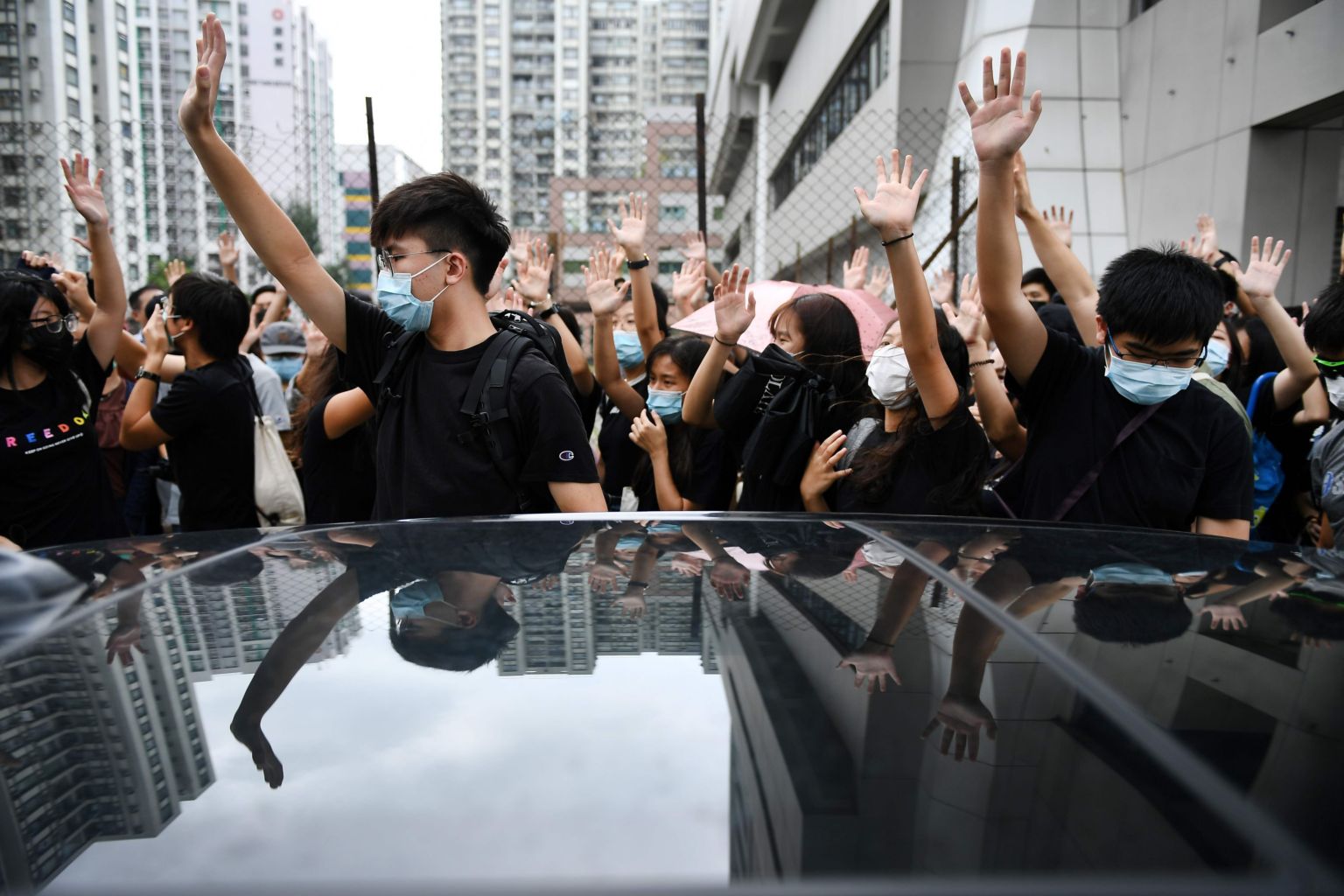China says Hong Kong courts have no power to rule on face mask ban
Sign up now: Get ST's newsletters delivered to your inbox

Protesters shout slogans as they gather outside the Eastern District Courts in Hong Kong, where the first protesters arrested for wearing face masks appeared in court on Oct 7, 2019.
PHOTO: AFP
Follow topic:
SHANGHAI (REUTERS) - China's top legislature said Hong Kong courts have no power to rule on the constitutionality of legislation under the city's Basic Law, which includes a proposed ban on face masks, state news agency Xinhua reported on Tuesday (Nov 19).
The statement came a day after Hong Kong's High Court ruled that a ban on wearing face masks during public demonstrations that have rocked the financial hub for more than five months was unconstitutional.
"Whether the laws of the Hong Kong Special Administrative Region comply with the Basic Law of Hong Kong can only be judged and decided by the Standing Committee of the National People's Congress," Yan Tanwei, a spokesman for the Legislative Affairs Commission of the Standing Committee of the National People's Congress, said in a statement.
"No other authority has the right to make judgments and decisions," the statement said.
The Hong Kong government invoked a colonial-era emergency law in October banning faced masks commonly used by protesters.
Hong Kong and Macau Affairs Office spokesman Yang Guang also said the High Court's ruling challenges the authority of China's Standing Committee of the National People's Congress and the governing power of Chief Executive Carrie Lam, the official Xinhua News Agency reported. He added that the court ruling will have a severe negative social and political impact.
Protesters had been using masks to hide their identities in public. The proposal was widely criticised by supporters of the anti-government movement, who saw it as posing a risk to demonstrators.
Hong Kong's High Court ruled on Monday that colonial-era emergency laws, which were revived to justify the mask ban, were"incompatible with the Basic law", the mini-constitution under which Hong Kong was returned to China in 1997.

